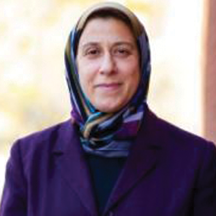In a nutshell
Telework opportunities may not boost female labour force participation if they do not address women’s perceptions, experiences and concerns about working with men.
Working remotely may even further disadvantage women if developing collegial networks and rapport, trust and interpersonal skills with (predominantly male) bosses is harder online.
Given that most economic, social and political power remains male-dominated, female empowerment that is bound to same-sex settings, like telework from home, risks preserving gender inequalities beyond the realm of work, too.
Amid coronavirus lockdowns and recessions, many fear that the pandemic’s economic fallout will hit women hardest. Lay-offs in the service industries, which disproportionately hire women, and increasing demands for care work at home are pushing women out of paying jobs.
At the same time, mounting childcare needs from school and day-care closures threaten many women’s productivity and potential for career advancement. The International Labor Organization (ILO) warns that the pandemic could undo decades of progress in gender equality at work.
While the pandemic threatens women’s gains in the paid labour force, even getting women into the paid labour force remains a challenge for many countries. In the Middle East and North Africa (MENA), just 20% of women between the ages of 15 and 64 are in the formal paid labour force, a rate that has not changed in the past 15 years. Low rates of female labour force participation do not bode well for gender equality in the region.
The United Nations emphasises that women’s economic empowerment is central to advancing women’s rights and wellbeing. Earning income may empower women by giving them the resources to invest in themselves and others. By contributing to household income, women who earn income may also change men’s patriarchal attitudes.
As workplaces adapt to life under Covid-19, the global shift towards telework may be a boon for women’s employment in MENA. Highly educated but out of the paid labour force, and with easy internet access in many MENA states, the region’s women are well positioned to capitalise on remote work opportunities.
Indeed, Saudi Arabia’s Ministry of Labor has for several years actively sought to promote telework as a way to integrate more women into the labour force. While telework is rare in the region, MENA women who telecommuted reported positive experiences in a recent OECD study.
Our research in Jordan – a country with one of the lowest rates of female labour force participation in the world – suggests that telework is both an opportunity and a potential pitfall for women with the means to work.
On the one hand, working from home may lower barriers to female labour force participation by bringing paid employment opportunities to private spaces. Working alongside unrelated men is a strong deterrent to women’s employment preferences in Jordan.
In an experimental survey asking respondents to choose between hypothetical job opportunities, we find that Jordanian women view below-average wages less negatively than mixed-sex workspaces. Our analysis estimates that Jordanian women are 19% less likely to accept a job if involves working alongside men. If remote work and social distancing in the office offer more employment opportunities that require little to no physical proximity to men, these ‘new-normal’ work practices may assuage the objections of women (and their families) to opportunities that require working near men.
At the same time, women’s reluctance to work in mixed-sex workspaces may stem from more than an aversion to physical proximity to unrelated men. Concerns over male colleagues’ mistreatment, underappreciation or entitlement may inhibit women’s interest in and ability to thrive in the paid labour force, whether in person or online.
In another experiment in Jordan, we randomised participants’ relative earned income from an effort task in a laboratory setting and measured its effect on female participants’ efficacy and influence – two behavioural dimensions of empowerment – in bargaining games involving same-sex and mixed-sex pairs.
We find that earning even a little income can empower women to argue more forcefully for their preferences. Higher-earning women are only more influential over bargaining outcomes, however, when paired against women, not men.
Women’s aversion to mixed-sex spaces could be a response, in part, to an expectation that they will struggle to make themselves heard and work effectively with men. In the United States, such expectations discourage women from entering politics and other professions known for gender discrimination.
On this front, there may be little difference in women’s experiences working with men in person or remotely. Working remotely may even further disadvantage women if developing collegial networks and rapport, trust and interpersonal skills with (predominantly male) bosses is harder online. Telework opportunities may not boost female labour force participation if they do not address women’s perceptions, experiences and concerns about working with men.
Our research in Jordan reflects and expands on findings from other contexts:
- In India, government programmes that target women for employment and give them direct control over their salaries got more women to work, improved their bargaining power at home, and altered norms around women working over the long run. But these interventions did not change men’s patriarchal attitudes towards women’s work, only their perceptions of what others found socially acceptable.
- In Morocco, efforts to promote income-generating activities among women had modest effects on women’s material wellbeing but little to no impact on their broader empowerment or social norms.
- In Malawi, belonging to a society with progressive gender norms resulting from matrilineality does more to flatten the gender gap in political participation than material resources alone.
All of these studies suggest that patriarchal norms can suppress, constrain or reverse the empowering effects of paid labour and inhibit women’s access to income-earning opportunities.
Given that most economic, social and political power remains male-dominated, female empowerment that is bound to same-sex settings, like telework from home, risks preserving gender inequalities beyond the realm of work, too. While a transition to telework may significantly lower barriers to getting women into paid work in the MENA and other regions, online employment, like in-person employment, many fail to alter social norms that are subject to inherently unequal gender relations.




